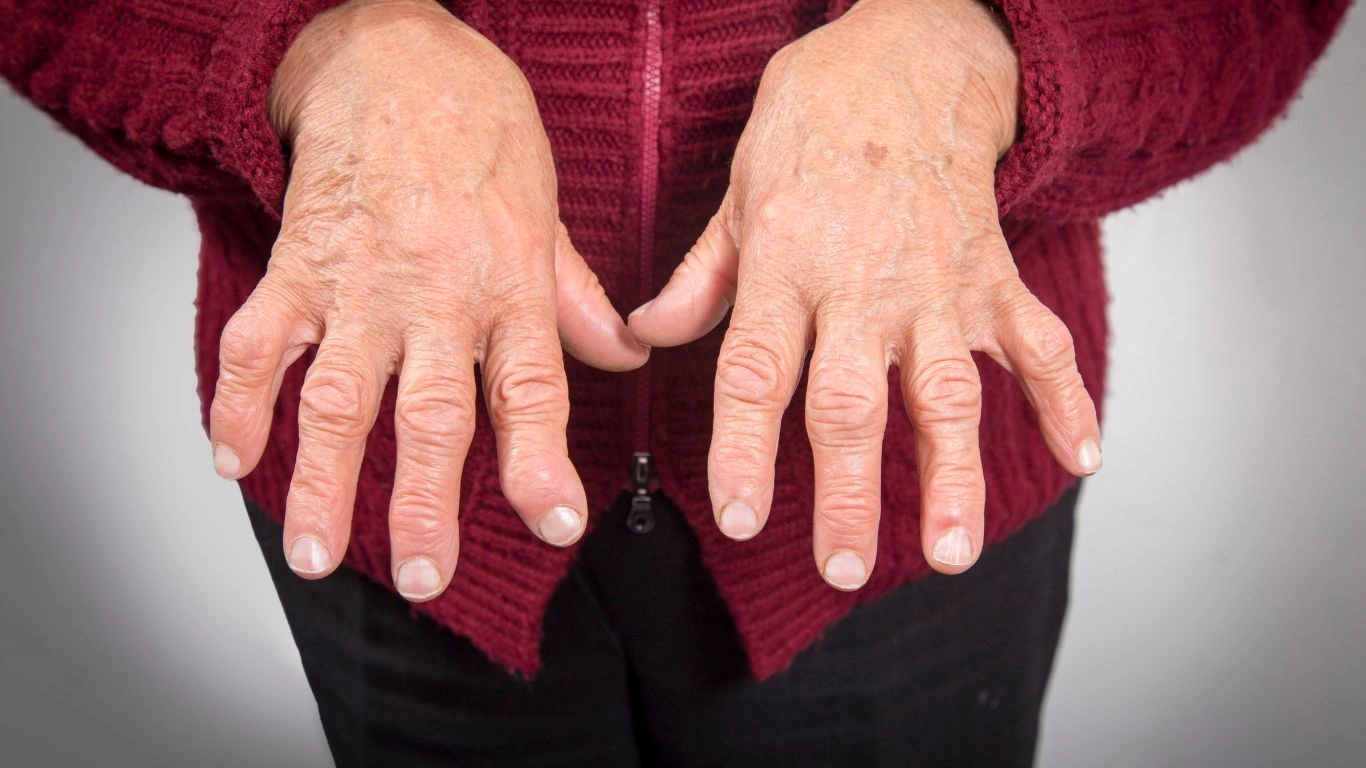Can Rheumatoid Arthritis Cause Hair Loss? – A Comprehensive Guide
Wondering if rheumatoid arthritis (RA) could be causing hair loss? Let’s dive into how RA affects hair health and what you can do about it!
Why Does Hair Loss Happen with RA?
When you have rheumatoid arthritis, your immune system is essentially in overdrive, attacking your joints. But did you know that this autoimmune process can also affect other parts of your body? Yeah, it can. One of the surprising things people with RA experience is hair loss. And while it’s not a guaranteed outcome for everyone with the condition, it’s definitely something that can happen. Let’s take a closer look at why.

Is RA Directly Linked to Hair Loss?
Okay, here’s the thing. RA itself doesn’t directly cause hair loss in most people, but the inflammation that comes with it can play a role. The immune system going haywire and attacking tissues isn’t just limited to your joints. Sometimes, it can mess with your hair follicles too, leading to shedding or thinning.
The exact mechanism isn’t completely clear, but here’s what we know:
- Inflammation: Chronic inflammation in your body can disrupt your hair growth cycle. This can cause more hair to enter the shedding phase than usual.
- Medications: Many RA treatments, particularly disease-modifying anti-rheumatic drugs (DMARDs), can have side effects like hair loss. Methotrexate, for example, is known to sometimes cause thinning hair.
- Stress: RA can be stressful, and stress itself is a well-known trigger for hair loss. The stress of dealing with flare-ups or chronic pain can contribute to conditions like telogen effluvium, which causes temporary hair shedding.
What Does Hair Loss Look Like with RA?
If you’re experiencing hair loss due to RA, it might not look the same for everyone. Some people notice hair thinning over time, while others may deal with more noticeable shedding or bald patches. The pattern of hair loss can vary, but here are a few common types you might see:
- General thinning: This is when hair becomes noticeably thinner all over the scalp, and it’s usually a gradual process.
- Telogen effluvium: This is a condition where hair enters the shedding phase prematurely. It’s often linked to stress, illness, or medication, and it can cause more hair than usual to fall out.
- Alopecia areata: This is a bit rarer, but some people with autoimmune conditions like RA can develop alopecia areata, which causes small, round patches of hair loss.

RA Medications and Hair Loss
You might be thinking, “But I’m on medication for RA, does that make a difference?” And you’re right to ask. Some of the drugs used to treat RA are known to have side effects that include hair thinning or shedding. Let’s look at a few common RA treatments:
Methotrexate
A commonly used DMARD, methotrexate can cause hair loss in some people. It’s not a given, but it’s one of the medications that might lead to thinning hair. The good news is that hair loss due to methotrexate is typically reversible if you stop the medication.
Biologic Drugs
These newer treatments, like TNF inhibitors (e.g., Humira, Enbrel), are less likely to cause hair loss, but some people still report hair thinning. Again, it varies by person, so it’s worth talking to your doctor if you notice any changes.
Corticosteroids
These can cause a range of side effects, and hair thinning is one of them. Prednisone, in particular, can lead to increased hair shedding, especially when taken for long periods of time.
Managing Hair Loss with RA: Tips and Tricks
Dealing with RA and hair loss at the same time can be tough, but there are steps you can take to help manage both. Here are a few tips that might help you feel a little better about the situation:
1. Talk to Your Doctor About Medications
If you think your medication is contributing to hair loss, don’t hesitate to bring it up with your doctor. They might be able to adjust your treatment plan, switch medications, or recommend supplements to help minimize the effects.
2. Healthy Diet and Supplements
A healthy diet plays a huge role in supporting hair health. Make sure you’re eating plenty of nutrient-rich foods like lean proteins, leafy greens, and foods high in omega-3 fatty acids. Supplements like biotin, zinc, and vitamin D may also help with hair growth, but check with your healthcare provider before starting any new supplements.

3. Gentle Hair Care
If your hair is thinning, it’s important to be gentle with it. Avoid harsh treatments, excessive heat, or tight hairstyles that can put stress on your hair. Opt for a gentle shampoo and conditioner, and try not to brush wet hair too roughly.
4. Stress Management
Since stress can trigger hair loss, managing stress is crucial. This might mean finding ways to relax, like practicing yoga, meditating, or doing deep-breathing exercises. Keeping your stress levels under control is beneficial for both your RA and your hair.
Conclusion
So, can rheumatoid arthritis cause hair loss? The answer is yes, it can, but not in every case. It’s more about the inflammation, the stress, and sometimes the medications you’re taking. If you’re dealing with hair thinning or shedding alongside RA, it’s worth talking to your doctor to get to the bottom of it and figure out a treatment plan that works for both your joints and your hair.
Remember, you’re not alone in this! Many people with RA deal with hair loss, and there are steps you can take to manage it. Just take it one step at a time, and be kind to yourself.
Appendices
FAQs
- Can rheumatoid arthritis cause permanent hair loss?
In most cases, hair loss from RA is temporary and reversible. However, in some instances, it could lead to more permanent thinning if left untreated. - Are there specific treatments for hair loss with RA?
Hair loss treatment might involve changing medications, using topical treatments like minoxidil, or focusing on lifestyle changes like improving nutrition and reducing stress. - Can stress from RA flare-ups make hair loss worse?
Yes, stress is a known trigger for hair loss, and dealing with RA flare-ups can increase stress levels, potentially making hair loss worse. - Does diet affect hair loss with RA?
Absolutely! A balanced diet rich in vitamins, minerals, and healthy fats can support hair health and may help reduce hair thinning. - What if I’m not sure if my medication is causing hair loss?
It’s a good idea to discuss this with your doctor. They can help determine if your medication is the culprit and offer alternatives.
References
- American College of Rheumatology. (2023). “Rheumatoid Arthritis and Autoimmune Hair Loss.”
- National Institute of Arthritis and Musculoskeletal and Skin Diseases. (2024). “Managing Rheumatoid Arthritis.”
- Journal of Rheumatology, (2023). “The Link Between RA and Hair Health.”
Disclaimer
This article is for informational purposes only and is not intended to replace medical advice. Always consult your healthcare provider about any concerns regarding rheumatoid arthritis or hair loss.

Tarra Nugroho is a dedicated Nurse Practitioner with a strong foundation in family and preventive care. She brings both compassion and clinical expertise to her practice, focusing on patient-centered care and health education. As a contributor to Healthusias.com, Tarra translates medical knowledge into clear, empowering articles on topics like women’s health, chronic disease management, and lifestyle medicine. Her mission is simple: help people feel seen, heard, and informed—both in the clinic and through the content she creates. When she’s not caring for patients, Tarra enjoys weekend hikes, plant-based cooking, and curling up with a good health podcast.






